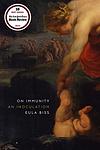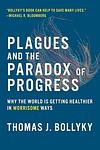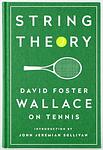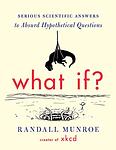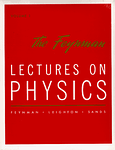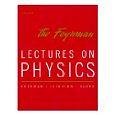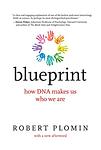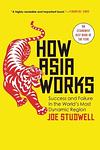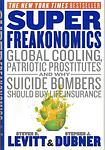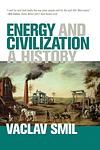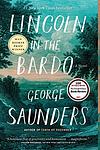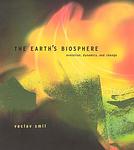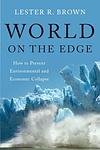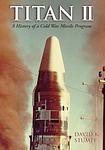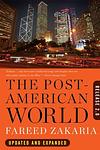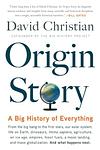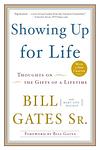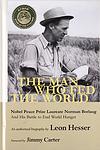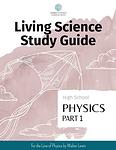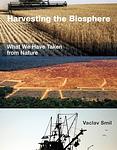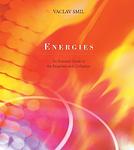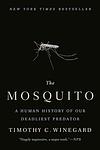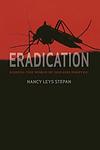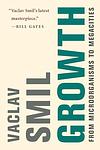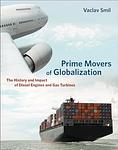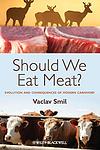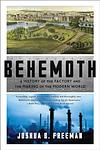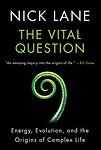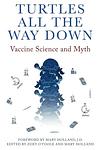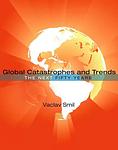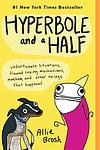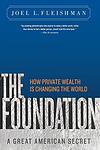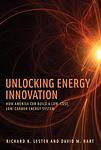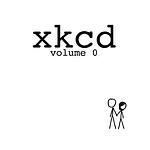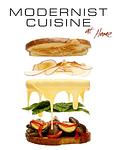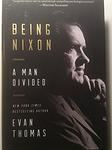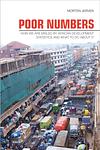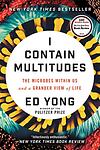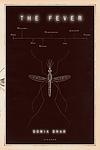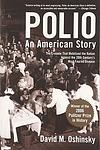Bill Gate's Book Recommendations
This is one of the 305 lists we use to generate our main The Greatest Books list.
-
Awakening Joy by James Baraz
This book is a transformative guide that offers readers a step-by-step approach to cultivating happiness in their lives. Drawing from both personal experiences and insights from various wisdom traditions, the author presents practical exercises and mindfulness practices designed to awaken joy and encourage a more positive, fulfilled existence. Through exploring themes such as gratitude, connection, and compassion, the book emphasizes that joy is not a fleeting emotion but a profound state of being that can be nurtured and sustained, regardless of external circumstances. It serves as both an inspirational and practical manual for anyone looking to find deeper satisfaction and contentment in their daily life.
The 9212th Greatest Book of All Time -
On Immunity by Eula Biss
This book delves into the cultural and ethical dimensions of vaccination, weaving personal narrative with scientific research to explore society's fears and myths surrounding immunity. The author examines the history and science of vaccination, addressing public skepticism and the complex issues of risk and responsibility in a community. Through a thoughtful investigation, the book challenges readers to consider the implications of our interconnectedness in the face of health crises and the moral obligations we share in protecting not only ourselves but also the most vulnerable among us. It is a compelling blend of literature, medicine, and philosophy that invites a deeper understanding of what it means to be immune.
The 9582nd Greatest Book of All Time -
The Great Escape by Angus Deaton
This book delves into the historical journey of human progress, particularly focusing on how health and prosperity have evolved over time to create significant disparities in wealth and well-being across different populations. It examines the mechanisms of growth and the spread of prosperity, alongside the challenges and inequalities that have emerged. Through a detailed analysis, the narrative explores the roles of technology, innovation, and government policies in shaping the economic landscapes and the distribution of resources. The author critically addresses the complexities of escaping poverty and the ethical considerations surrounding aid and intervention in less developed economies. The work is a comprehensive exploration of the global patterns of health, wealth, and inequality, offering insights into the potential paths toward a more equitable world.
The 9504th Greatest Book of All Time -
Plagues And The Paradox Of Progress by Thomas J. Bollyky
This book explores the complex relationship between global health improvements and the economic and political challenges that arise as a result. It delves into how the reduction of infectious diseases has led to a longer lifespan and unprecedented population growth, but also highlights the paradox where such progress brings about new health threats and economic disparities. The narrative underscores the importance of integrating health policies with economic and social development to address these emerging challenges, advocating for a holistic approach to ensure sustainable progress. Through a blend of historical analysis, case studies, and current trends, the text presents a compelling argument for rethinking global health strategies in the face of evolving global health landscapes.
The 9962nd Greatest Book of All Time -
Brain Rules by John Medina
This book explores the intricacies of how the human brain works, particularly in relation to learning and functioning in our daily lives. It delves into 12 fundamental principles, or "rules," that govern our understanding of brain science, such as the importance of exercise, sleep, and stress management in enhancing cognitive abilities. The author, a molecular biologist, uses a blend of research and practical advice to demonstrate how these principles can be applied to improve education, work, and personal development. By bridging the gap between scientific theory and everyday life, the book offers insightful perspectives on optimizing brain health and performance.
The 9047th Greatest Book of All Time -
String Theory by David Foster Wallace
This book is a collection of five essays that delve into the world of professional tennis, offering a unique and profound perspective on the sport. Through the lens of an amateur player turned acclaimed writer, the narrative explores the beauty, precision, and psychological depth of tennis, weaving personal anecdotes with professional analysis. The essays not only highlight the physical and mental demands of the game but also reflect on the broader human experience, touching on themes of ambition, discipline, and the pursuit of excellence. The author's keen observations and distinctive voice bring to life the world of tennis in a way that resonates with both aficionados of the sport and readers new to the game.
The 9725th Greatest Book of All Time -
The Rosie Project by Graeme Simsion
The novel centers around Don Tillman, a brilliant yet socially awkward genetics professor who has never been on a second date. Convinced he is simply not wired for romance, he embarks on the Wife Project - a scientific test to find the perfect partner. Enter Rosie Jarman, who is everything Don is not looking for: she's impulsive, fiery, and working as a barmaid while searching for her biological father. When Don agrees to help Rosie with her own project, his orderly, evidence-based approach to life is turned upside down. Through a series of unconventional encounters, the pair embarks on an endearing journey that challenges Don's perceptions of love, partnership, and what it means to be "normal."
The 9504th Greatest Book of All Time -
Energy And Civilization by Vaclav Smil
This book provides a comprehensive examination of the role that energy has played in the development of human societies, from the harnessing of fire by early humans to the complex energy grids of the 21st century. It explores how the transformation and consumption of energy have been pivotal in the advancement of civilizations, underpinning economic systems, technological progress, and the rise and fall of empires. The author meticulously analyzes the transition from muscle power to fossil fuels and renewable energy sources, highlighting the environmental and societal impacts of our growing energy demands. Through a detailed historical and scientific lens, the narrative underscores the critical importance of energy management in addressing current global challenges, advocating for a more sustainable and efficient future.
The 9804th Greatest Book of All Time -
The Future Of Capitalism by Paul Collier
In "The Future of Capitalism," the author delves into the current challenges facing capitalist societies, including deepening economic divides, geographical disparities, and the erosion of ethical norms that have traditionally guided market economies. The book argues for a reinvention of capitalism, advocating for a model that emphasizes social solidarity, a sense of obligation to the community, and policies that address the needs of the most vulnerable. Through a blend of personal experience, economic analysis, and policy recommendations, the author makes a compelling case for a more ethical and inclusive form of capitalism that can address the 21st century's complex social and economic issues.
The 9962nd Greatest Book of All Time -
Big History by Cynthia Stokes Brown
This book offers a sweeping overview of the universe's 13.8 billion-year history, from the Big Bang to the present day, integrating insights from a wide range of disciplines including cosmology, geology, anthropology, and history. It presents an accessible and engaging narrative that explores major developments and themes across time, highlighting the interconnectedness of the cosmos, Earth, life, and humanity. By weaving together the sciences and humanities, the book provides readers with a comprehensive understanding of the complexity and richness of the universe's story, encouraging a deeper appreciation of humanity's place within the vast tapestry of existence.
The 8955th Greatest Book of All Time -
The Most Powerful Idea In The World by William Rosen
This book delves into the history and evolution of the steam engine, positioning it as the cornerstone of the Industrial Revolution and a pivotal innovation that transformed the world. Through a blend of engaging narrative and insightful analysis, the text explores how a combination of intellectual curiosity, inventive genius, and legal frameworks like patent law converged to create an environment ripe for technological advancement. It argues that the steam engine not only revolutionized transportation and industry but also set the stage for the modern era of rapid innovation, highlighting the interplay between technology, society, and economics in driving human progress.
The 9212th Greatest Book of All Time -
What If? by Randall Munroe
This book is a fascinating exploration of bizarre and hypothetical questions, blending humor with scientific accuracy to illuminate the complexities of the universe. The author, a former NASA roboticist with a penchant for the absurd, delves into a wide range of speculative scenarios, from the outcomes of a baseball pitched at near-light speed to the possibility of a machine capable of erasing specific memories. Through engaging explanations and stick-figure illustrations, the book makes complex scientific principles accessible and entertaining, encouraging readers to ponder the infinite "what ifs" our world offers.
The 9582nd Greatest Book of All Time -
The Feynman Lectures on Physics by Richard P. Feynman
This book is a comprehensive collection of lectures on physics by a renowned physicist, covering everything from classical mechanics to quantum mechanics, electromagnetism, and statistical mechanics. These lectures, designed to be accessible to those without a deep background in the subject, offer a unique and insightful perspective on the fundamental principles of physics, combining rigorous scientific explanation with engaging anecdotes and analogies. The book is widely regarded as an essential resource for anyone interested in or studying the field of physics.
The 813th Greatest Book of All Time -
A Full Life by Jimmy Carter
This memoir offers a comprehensive look into the life of a former U.S. President, from his early years in rural Georgia through his time in the Navy, to his political career that culminated in the presidency, and his post-presidential efforts in diplomacy and humanitarian work. The author reflects on his personal and political challenges, achievements, and the principles that guided him. Through his narrative, he shares insights into key historical events, his commitment to peace and human rights, and his enduring belief in the power of faith and compassion. The book is a testament to a life dedicated to public service and the impact one individual can have on the world stage.
The 9656th Greatest Book of All Time -
The Great Influenza by John Barry
This book provides a comprehensive account of the 1918 flu pandemic, which is considered one of the deadliest in history, claiming the lives of an estimated 50 to 100 million people worldwide. The narrative delves into the origins and spread of the virus, the scientific and medical communities' struggle to understand and combat the disease, and the societal impacts of the pandemic. It also examines the role of government response, public health policies, and the effects on World War I. Through meticulous research, the book highlights the challenges of dealing with an unprecedented global health crisis and the lessons learned that are still relevant today.
The 8471st Greatest Book of All Time -
The Feynman Lectures On Physics, Vol. Iii by Richard P. Feynman
This book is the third volume in a series that delves into the complex world of quantum mechanics, offering a comprehensive exploration of the subject matter through the lens of one of the 20th century's most influential physicists. It covers a range of topics from quantum behavior and the relationship between physics and other sciences to more advanced discussions on spin, the principles of quantum mechanics, and the quantum mechanics of amorphous systems. Renowned for its accessible approach, the book breaks down intricate concepts into understandable segments, making it an invaluable resource for students and enthusiasts eager to expand their understanding of physics. The lectures encapsulate the author's unique ability to convey challenging scientific ideas in an engaging and insightful manner, blending rigorous scientific content with a touch of humor and personal insight.
The 5739th Greatest Book of All Time -
Reinventing American Health Care by Ezekiel J. Emanuel
This book provides a comprehensive analysis of the American health care system, detailing its history, current challenges, and potential future transformations. It delves into the Affordable Care Act's (ACA) impact, predicting significant changes in insurance markets, hospital systems, and the way health care is delivered. The author, a key architect of the ACA, offers an insider's perspective on health policy, arguing for the inevitability of America's health care system becoming more efficient and equitable. Through a blend of expert analysis and policy recommendations, the book presents a vision for how the American health care system can be reinvented to better serve all its stakeholders.
The 9582nd Greatest Book of All Time -
From The Ground Up by Howard Schultz
This book is an inspiring memoir and a call to action by the visionary leader who transformed a small Seattle coffee shop into one of the world's most beloved companies. It details the author's journey from growing up in public housing to becoming the CEO of a global coffee empire, emphasizing the importance of compassion, responsibility, and ethics in business. Through personal stories and insights, the narrative explores the challenges of building a company with a conscience and the commitment to not only achieving profitability but also contributing positively to society. It's a testament to the power of dreaming big, the value of hard work, and the impact of thoughtful leadership.
The 10053rd Greatest Book of All Time -
Blueprint by Nicholas A. Christakis
This book delves into the fascinating realm of human social behavior, arguing that despite the vast diversity of societies, there exists a common structure to how humans form relationships and communities. The author, a renowned sociologist and physician, uses a blend of historical evidence, evolutionary biology, and sociology to demonstrate that certain social patterns are ingrained in our biology. Through an exploration of friendship, cooperation, and the inherent tendency towards creating social networks, the book posits that these universal patterns of social interaction have played a crucial role in our species' survival and success. It presents a compelling case for the existence of a social blueprint that shapes our interactions and the societies we build, suggesting that understanding this blueprint is key to addressing contemporary social challenges.
The 10053rd Greatest Book of All Time -
How Asia Works by Joe Studwell
This book provides a comprehensive analysis of the economic development in nine Asian countries, focusing on the policies and strategies that have driven their growth. It contrasts successful economies like Japan, South Korea, and China with less successful ones in Southeast Asia, examining land reforms, manufacturing policies, and financial control. The author argues that the successful countries followed a similar developmental path by implementing land reform to support smallholder farming, focusing on manufacturing with strict productivity goals, and controlling the financial sector to support these policies. The book challenges conventional economic theories and offers insights into the mechanisms behind Asia's economic transformations.
The 9504th Greatest Book of All Time -
Super Freakonomics by Steven D. Levitt, Stephen J. Dubner
This book delves into the counterintuitive aspects of economics, applying economic theory to a wide range of unusual and everyday topics to explore hidden aspects of the world. Through engaging narratives and data analysis, it challenges conventional wisdom and uncovers surprising insights into human behavior, crime rates, high-stakes financial decisions, and more. The authors use a blend of storytelling and rigorous research to question the obvious and reveal the unseen forces shaping our lives, demonstrating how economic principles can illuminate complex and seemingly unrelated phenomena.
The 9112th Greatest Book of All Time -
Interventions by Kofi Annan
This book is a compelling memoir and a detailed account of the diplomatic life of one of the world's most esteemed peacemakers. Through a series of engaging narratives, the author shares his experiences and the lessons learned during his tenure as the Secretary-General of the United Nations. He delves into the complexities of negotiating peace, fostering development, and promoting democracy across the globe, while also addressing the myriad challenges he faced, from conflicts and wars to global health crises and the fight against poverty. The author's insights into the intricacies of international diplomacy and his unwavering commitment to peace and justice make this work an invaluable resource for understanding the efforts required to sustain global harmony and security.
The 9384th Greatest Book of All Time -
Energy by Vaclav Smil
This book provides a comprehensive exploration of energy in its various forms, tracing its role throughout human history. The author delves into the science of energy, from the muscle power of prehistoric humans to the modern era's reliance on fossil fuels and the potential of renewable sources. With a focus on the environmental and societal impacts of energy consumption, the narrative emphasizes the importance of sustainable energy practices. Through a blend of historical context, scientific analysis, and a look at current energy challenges, the book offers a deep understanding of the essential role energy plays in shaping civilizations and the urgent need for a more efficient and environmentally friendly approach to energy use.
The 8070th Greatest Book of All Time -
Lincoln in the Bardo by George Saunders
The novel is set in a graveyard over the course of a single night and is narrated by a dazzling chorus of voices. The story is centered around the death of President Lincoln's 11-year-old son Willie, who resides in the Bardo, a transitional state between life and rebirth in Tibetan tradition. As Willie interacts with the other spirits stuck in this realm, his father visits the crypt to mourn, causing a struggle among the ghosts over the boy's soul. The narrative explores themes of grief, the impermanence of life, and the unresolved issues that keep us from moving on.
The 1585th Greatest Book of All Time -
The Ministry For the Future by Kim Stanley Robinson
The book is a speculative fiction narrative that explores the global response to a catastrophic climate crisis through the lens of an international organization tasked with advocating for future generations. Set in the near future, the story weaves together a tapestry of perspectives, from bureaucrats and activists to ordinary citizens, as they confront ecological disasters, economic upheaval, and social transformation. The organization at the heart of the novel employs a mix of diplomacy, policy, and direct action to mitigate climate change, showcasing the complexities and moral dilemmas associated with stewarding the Earth for both present and future inhabitants. The narrative grapples with themes of responsibility, sustainability, and the interconnectedness of global communities in the face of unprecedented environmental challenges.
The 6409th Greatest Book of All Time -
The Earth's Biosphere by Vaclav Smil
This book provides a comprehensive overview of the Earth's biosphere, exploring the complexity and resilience of life on our planet. It delves into the intricate relationships between the biosphere's various components, including ecosystems, organisms, and the physical environment, while also examining the impact of human activities on these natural systems. The author synthesizes a vast array of scientific knowledge to present a detailed yet accessible understanding of how the biosphere functions, its evolutionary history, and the critical challenges it faces in the modern era. Through this exploration, the book highlights the importance of sustainable practices to preserve the delicate balance of life on Earth for future generations.
The 8343rd Greatest Book of All Time -
World On The Edge by Lester R. Brown
This book presents a compelling analysis of the global environmental and economic challenges facing humanity, highlighting the precarious state of our planet's health due to climate change, resource depletion, and population growth. It argues that our civilization is at a critical crossroads, where the decisions we make today will determine the future sustainability of the Earth. Through a blend of stark warnings and optimistic solutions, the author urges immediate, collective action to implement sustainable practices across various sectors, including energy, agriculture, and economics, to avert the looming ecological and societal collapse.
The 9296th Greatest Book of All Time -
Energy Transitions by Vaclav Smil
This book provides a comprehensive analysis of the historical shifts in energy sources and consumption patterns, from traditional biomass to fossil fuels and the potential future transition to renewable energy sources. It examines the technological, economic, and environmental challenges associated with these energy transitions, emphasizing the complexity and duration of these shifts. The author argues that while transitions to more efficient and less environmentally damaging energy sources are necessary, they will be gradual and require significant technological innovations and societal adaptations. Through a detailed exploration of past and present energy systems, the book offers insights into the future of global energy consumption and the path towards a more sustainable energy landscape.
The 9212th Greatest Book of All Time -
Titan Ii by David Stumpf
This book provides a comprehensive history of the Titan II missile program, detailing its role as a key component of America's Cold War nuclear arsenal. It delves into the technical specifications, operational history, and strategic significance of the Titan II intercontinental ballistic missile (ICBM), which was the largest and most powerful ICBM deployed by the United States during the Cold War. The narrative also covers the challenges and accidents associated with managing such a potent weapon system, offering insights into the complexities of nuclear deterrence and the technological advancements in military weaponry during a tense period in global politics. Through meticulous research and detailed accounts, the book sheds light on the often-overlooked aspects of America's nuclear history and the delicate balance of power that defined the Cold War era.
The 8157th Greatest Book of All Time -
Parenting With Love And Logic by Foster Cline
This book presents a nurturing approach to parenting that emphasizes the importance of loving support and understanding in combination with logical consequences for children's actions. It guides parents on how to cultivate responsible and self-confident children by allowing them to make choices and face the natural consequences of those choices, within a loving and empathetic framework. The approach encourages parents to relinquish control battles, thereby reducing family conflict and fostering stronger parent-child relationships. Through practical advice and real-life examples, the book equips parents with strategies to handle everyday parenting challenges while preparing their children for a successful adulthood.
The 6730th Greatest Book of All Time -
Beyond Smoke And Mirrors by Douglas S. Massey
This book provides a comprehensive analysis of U.S. immigration policy and its impact on both American society and the people who migrate. It critically examines the historical development of immigration laws and enforcement, debunking common myths and misconceptions with empirical evidence. The author argues that current policies are ineffective, often exacerbating the problems they aim to solve, and proposes a more humane and rational approach to immigration. By exploring the economic, social, and legal aspects of the issue, the book offers a clear-eyed view of the complex realities behind the rhetoric, advocating for policies that reflect the values of fairness and opportunity.
The 8343rd Greatest Book of All Time -
The Post American World by Fareed Zakaria
This book explores the shifting landscape of global power, emphasizing the rise of countries like China and India, and the relative decline of American dominance in economic, political, and cultural terms. The author argues that we are transitioning into a "post-American" world, where the United States will remain a vital player but will no longer hold unrivaled supremacy. Through insightful analysis, the book examines the implications of this shift for international relations, global governance, and the global economy, advocating for a new approach to American foreign policy that embraces this multipolar reality. The narrative is both a wake-up call and a guide for navigating the complexities of the 21st century's international dynamics.
The 9047th Greatest Book of All Time -
Tropical Infectious Diseases by Richard L. Guerrant
This comprehensive text delves into the complex world of infectious diseases prevalent in tropical regions, offering an in-depth exploration of their epidemiology, pathology, clinical manifestations, diagnosis, and management. It serves as an essential resource for healthcare professionals, researchers, and students, providing detailed insights into diseases that disproportionately affect the world's most vulnerable populations. Through a combination of scientific rigor and practical advice, the book aims to enhance understanding, prevention, and treatment of tropical infectious diseases, highlighting the importance of global health initiatives and the need for equitable healthcare solutions.
The 8070th Greatest Book of All Time -
Origin Story by David Christian
This book offers a comprehensive overview of the universe's 13.8 billion-year history, from the Big Bang to the present day, in a manner that is accessible to non-scientists. It explores the development of the cosmos, the emergence of life on Earth, and the evolution of humanity, weaving together insights from a range of disciplines including cosmology, biology, and anthropology. The narrative is structured around the concept of "Big History," aiming to provide readers with a deeper understanding of humanity's place within the vast, complex system of the universe. Through this lens, the book addresses fundamental questions about our origins, the intricate interconnections that sustain life, and the future challenges we face on a planetary scale.
The 9962nd Greatest Book of All Time -
Showing Up For Life by Bill Gates Sr.
This book is a collection of personal anecdotes and reflections that offer insights into leading a life filled with meaning, compassion, and a sense of responsibility. Drawing from his own experiences, the author emphasizes the importance of community, giving back, and the power of showing up—not just in the big moments, but every day. Through stories that span from his humble beginnings to his involvement in various philanthropic efforts, he illustrates how values like generosity and being present for others can shape not only individual lives but also the world at large. The narrative serves as a gentle reminder of the impact that one person's actions can have on the lives of many, encouraging readers to live intentionally and with purpose.
The 9112th Greatest Book of All Time -
The Man Who Fed The World by Leon Hesser
This book provides a compelling biography of Norman Borlaug, an agronomist whose pioneering work in developing high-yield, disease-resistant wheat varieties played a crucial role in averting widespread hunger and famine in the mid-20th century. Dubbed the father of the Green Revolution, Borlaug's innovations transformed agriculture, particularly in Mexico, India, and Pakistan, dramatically increasing food production and saving billions of lives from starvation. Through his story, the narrative explores the challenges of food security, the impact of scientific innovation on global hunger, and the enduring legacy of a man whose work reshaped the world's approach to farming and food distribution.
The 8644th Greatest Book of All Time -
13 Things That Don't Make Sense by Michael Brooks
This book delves into the mysteries and anomalies that challenge our current understanding of science, presenting a thought-provoking exploration of thirteen phenomena that defy explanation by contemporary scientific theories. From the puzzling behavior of the placebo effect to the unaccounted for 'dark matter' that fills the universe, the author navigates through a range of topics that span across various disciplines including biology, physics, and astronomy. Each chapter is dedicated to a different 'thing' that doesn't make sense, inviting readers to ponder the limitations of human knowledge and the potential for future scientific breakthroughs. The book serves as a compelling reminder of the mysteries that remain unsolved and the ongoing quest for knowledge.
The 9047th Greatest Book of All Time -
The Power To Compete by Hiroshi Mikitani, Ryoichi Mikitani
This book delves into the economic challenges facing Japan, offering a dialogue between a father, an economist, and his son, a successful entrepreneur. Together, they explore the reasons behind Japan's stagnation and propose solutions to revitalize its economy. They argue that Japan needs to embrace innovation, deregulation, and entrepreneurship to regain its competitive edge in the global market. The book combines a deep understanding of economic principles with practical insights from the business world, making a compelling case for structural reforms and a new mindset to power Japan's comeback on the world stage.
The 9582nd Greatest Book of All Time -
Everything Happens For A Reason by Kate Bowler
This book is a poignant memoir that delves into the life of a young historian who faces an unexpected stage IV colon cancer diagnosis. As she navigates the complexities of her illness, she examines the prosperity gospel—a belief system that suggests that fortune is a divine reward for faith and righteousness—and its impact on her understanding of suffering, faith, and the human desire to find meaning in tragedy. Through her journey, she confronts the cliché that "everything happens for a reason," offering a raw and insightful exploration of the realities of facing death, the struggle to find hope, and the quest for understanding in the midst of the inexplicable. Her narrative is a powerful reflection on faith, love, and the human capacity to endure in the face of uncertainty.
The 9962nd Greatest Book of All Time -
Science Business by Gary P. Pisano
This book delves into the unique challenges and opportunities that lie at the intersection of science and business, exploring how companies in the biotechnology and pharmaceutical sectors can navigate the complexities of innovation, research and development, and commercialization. It provides a comprehensive analysis of the strategies that successful firms employ to manage the risks and capitalize on the advancements in science and technology. Through a blend of case studies, theoretical insights, and practical advice, the book offers a roadmap for companies looking to thrive in the highly competitive and rapidly evolving landscape of the science-based industries.
The 8644th Greatest Book of All Time -
Global Warming by John Theodore Houghton
This book provides a comprehensive overview of global warming, detailing the scientific evidence that supports the phenomenon and its potential impacts on the planet. It delves into the mechanisms driving climate change, including greenhouse gas emissions and deforestation, and discusses the wide-ranging effects on ecosystems, weather patterns, and sea levels. The author, a prominent figure in climate science, also explores the socio-economic implications of global warming and outlines possible strategies for mitigation and adaptation. Aimed at both scientists and the general public, the book emphasizes the urgency of addressing climate change to safeguard the future of the planet.
The 6573rd Greatest Book of All Time -
For The Love Of Physics by Walter Lewin
This book is a captivating journey through the wonders of physics, written by a renowned professor known for his dynamic teaching style. It explores the beauty and excitement of the physical world, from the smallest particles to the vastness of the cosmos. Through personal anecdotes and clear explanations, the author shares his profound love for physics, aiming to inspire readers to see the world through the lens of scientific curiosity. The narrative not only demystifies complex concepts but also highlights the role of physics in everyday life, making it an engaging read for both novices and those familiar with the subject.
The 9296th Greatest Book of All Time -
Harvesting The Biosphere by Vaclav Smil
This book provides a comprehensive examination of the human impact on Earth's biosphere, focusing on the extraction and exploitation of biological resources. It delves into historical and contemporary practices of harvesting plants and animals for food, fuel, and raw materials, quantifying the scale and intensity of these activities. The author meticulously analyzes how these practices have evolved over time and assesses their sustainability and environmental consequences. By offering a detailed account of the biosphere's transformation under human influence, the book presents a critical perspective on the limits of resource utilization and the urgent need for adopting more sustainable practices to ensure the long-term viability of our planet's ecosystems.
The 9504th Greatest Book of All Time -
Energies by Vaclav Smil
This book provides a comprehensive exploration of the various forms of energy that power the planet, from traditional fossil fuels to renewable sources like wind and solar power. The author delves into the scientific principles underlying energy conversion, storage, and transmission, offering insights into the complexities of energy systems and their impacts on the environment and society. Through a detailed analysis, the book presents a balanced view on the challenges and opportunities of transitioning to a more sustainable energy future, emphasizing the need for informed policy decisions and technological innovations.
The 9047th Greatest Book of All Time -
The Mosquito by Timothy C. Winegard
This book presents a compelling examination of how the mosquito has been a pivotal force in shaping human history. Through meticulous research, it uncovers the profound impact these tiny insects have had on wars, colonization, and the spread of diseases across continents. The narrative delves into the biological and ecological aspects of the mosquito, revealing how its role as a carrier of deadly pathogens like malaria, yellow fever, and dengue has influenced the outcomes of battles, the fates of empires, and the lives of billions of people. By weaving together historical events with scientific insights, the book offers a unique perspective on the mosquito's place in the world and its indelible influence on human civilization.
The 10053rd Greatest Book of All Time -
Jim Grant by Peter Adamson
This biography provides an in-depth look into the life and career of Jim Grant, a prominent figure whose contributions have significantly impacted his field. The book meticulously details Grant's early life, educational background, and the pivotal moments that shaped his career trajectory. Through extensive research and interviews, the author, Peter Adamson, paints a comprehensive portrait of Grant, highlighting his professional achievements, the challenges he faced, and his lasting legacy. This narrative not only celebrates Grant's accomplishments but also provides valuable insights into the societal and historical context in which he worked, making it a compelling read for anyone interested in the life of this influential individual.
The 8230th Greatest Book of All Time -
Money Well Spent by Paul Brest, Hal Harvey
This book serves as a comprehensive guide for philanthropists and foundations who aim to maximize the impact of their giving. It outlines a strategic approach to philanthropy that emphasizes the importance of setting clear goals, choosing effective strategies, and measuring outcomes to ensure that donations lead to meaningful and sustainable change. Through a combination of theory, practical advice, and real-world examples, the authors provide readers with the tools they need to make informed decisions about their charitable investments, ultimately making their philanthropy more effective and fulfilling. The book challenges traditional notions of giving and encourages donors to think critically and strategically about how they can use their resources to address some of the world's most pressing problems.
The 9047th Greatest Book of All Time -
Energy At The Crossroads by Vaclav Smil
This book provides a comprehensive analysis of global energy challenges, focusing on the transition from traditional fossil fuels to more sustainable energy sources. It delves into the historical context of energy consumption, the environmental impacts of current energy use, and the technological, economic, and social hurdles that need to be overcome to shift towards renewable energy. The author critically examines the feasibility of various alternative energy sources, including solar, wind, and nuclear power, and emphasizes the importance of energy efficiency. Through a detailed and realistic assessment, the book presents a nuanced perspective on the complex interplay between energy, environment, and society, urging for a more informed and strategic approach to energy policy and innovation.
The 8405th Greatest Book of All Time -
The Perfect Weapon by David E. Sanger
This book delves into the complex and shadowy realm of cyber warfare, revealing how it has become the weapon of choice for the world's powers. Through meticulous research and interviews, it uncovers the strategies behind the United States' use of cyber capabilities for espionage and sabotage, and how these tactics are now being turned against it by adversaries. The narrative explores significant cyber incidents and their implications on national security, international relations, and the future of warfare. By highlighting the challenges of defending against invisible threats in a digital age, the book underscores the urgent need for new rules of engagement in cyberspace to prevent escalating cyber conflicts.
The 9962nd Greatest Book of All Time -
Health Care Will Not Reform Itself by George C. Halvorson
This book provides a critical examination of the United States health care system, arguing that the system is deeply flawed and cannot reform from within due to entrenched interests and systemic inefficiencies. The author, a seasoned health care industry executive, offers a comprehensive analysis of the challenges facing health care delivery, including the high costs, uneven quality, and lack of access for many Americans. Drawing on extensive experience and insights, the book proposes a series of reforms aimed at achieving better health outcomes, greater efficiency, and more equitable access to care. Through a blend of practical solutions and visionary thinking, the narrative makes a compelling case for transformative change, emphasizing the need for external pressures and innovative thinking to overhaul the health care system.
The 9112th Greatest Book of All Time -
Outbreak Culture by Pardis Sabeti
This book delves into the complex interplay of scientific, cultural, and organizational dynamics during epidemic outbreaks, revealing how these factors can often hinder effective response efforts. Through a detailed examination of recent global health crises, the authors argue that bureaucratic obstacles, competition for recognition, and communication breakdowns can exacerbate the spread of disease. Drawing on firsthand experiences and research, the narrative highlights the need for a more collaborative, transparent, and equitable approach in the fight against infectious diseases, advocating for systemic changes to prevent future outbreaks from spiraling out of control.
The 9962nd Greatest Book of All Time -
How To Spend $50 Billion To Make The World A Better Place by Bjørn Lomborg
This book presents a thought-provoking analysis on the most effective ways to utilize a hypothetical budget of $50 billion to address global challenges. The author, leveraging insights from leading economists and experts, prioritizes various interventions—from healthcare and education to climate change mitigation—based on their potential to deliver the greatest benefits to humanity. Through a rigorous cost-benefit analysis, the text challenges readers to think critically about the allocation of resources in tackling the world's most pressing issues, advocating for evidence-based solutions that promise the highest returns on investment for improving global welfare.
The 8644th Greatest Book of All Time -
The Myth Of The Strong Leader by Archie Brown
This book critically examines the widespread belief that strong, dominant leadership is the most effective form of governance, arguing instead for the value of leaders who are collaborative, collegial, and democratic. Through a comprehensive analysis of political leaders across different eras and countries, the work challenges the conventional wisdom that the most successful leaders are those who wield power in an autocratic or charismatic manner. Instead, it posits that truly transformative leaders are those who prioritize the empowerment of their teams and the broader populace, demonstrating that effective leadership is less about consolidating power in the hands of the few and more about distributing it in a way that fosters collective progress and democratic engagement.
The 9582nd Greatest Book of All Time -
The World Until Yesterday by Jared Diamond
This book provides a comprehensive examination of traditional societies, drawing on the author's extensive fieldwork and the broader anthropological record to explore what the modern world can learn from people who have lived in small, close-knit communities for thousands of years. It delves into various aspects of traditional life, including conflict resolution, child-rearing practices, treatment of the elderly, and risk management, offering insights into human behavior and social evolution. The work challenges readers to consider the benefits and drawbacks of both traditional and modern societies, suggesting that understanding our past can offer valuable lessons for addressing contemporary issues.
The 9384th Greatest Book of All Time -
Eradication by Nancy Leys Stepan
This book provides a comprehensive examination of the concept and practice of disease eradication from a historical perspective. It delves into the scientific, ethical, and political dimensions of the global efforts to eliminate diseases, focusing on case studies such as smallpox, malaria, and polio. The narrative critically assesses the successes and failures of these campaigns, highlighting the complexities and challenges involved in attempting to wipe out diseases. Through a detailed analysis, the book explores the implications of eradication efforts on public health policies and practices, questioning the feasibility and desirability of pursuing eradication as a goal in the face of evolving disease dynamics and global health landscapes.
The 9296th Greatest Book of All Time -
Growth by Vaclav Smil
This book provides a comprehensive exploration of growth in various domains, including biological, societal, economic, and technological realms. The author meticulously examines the principles and patterns of growth, from the microscale of organisms to the macroscale of human civilization. Through a detailed analysis, the narrative delves into the implications of unchecked growth, particularly focusing on the sustainability challenges it poses to the environment and future generations. The work is a thought-provoking synthesis that encourages readers to reconsider the conventional pursuit of growth, advocating for a more measured and sustainable approach to development across all facets of life.
The 10053rd Greatest Book of All Time -
Prime Movers Of Globalization by Vaclav Smil
This book provides a comprehensive analysis of the technological innovations and energy systems that have been pivotal in driving globalization from the mid-19th century to the present day. It focuses on the development and impact of diesel engines, gas turbines, and the containerization of cargo, illustrating how these innovations have significantly increased the efficiency, speed, and scale of global trade and transportation. The narrative underscores the critical role of energy transitions in facilitating economic growth and interconnectivity across continents, while also considering the environmental and geopolitical implications of our reliance on fossil fuels and the urgent need for sustainable alternatives. Through a detailed examination of technological advancements, the work offers insights into the complex dynamics that have shaped the modern globalized world.
The 9212th Greatest Book of All Time -
Should We Eat Meat? by Vaclav Smil
This book provides a comprehensive examination of the role of meat in human diets and its impact on health, the environment, and society. It delves into the history of meat consumption, explores the ethical considerations surrounding animal farming, and analyzes the environmental consequences of meat production, including greenhouse gas emissions and land use. The author presents a balanced view, weighing the nutritional benefits of meat against its ecological footprint and considering sustainable alternatives. Through a detailed and scientific approach, the book encourages readers to ponder the complex question of whether the consumption of meat is justifiable in the modern world, offering insights into possible future directions for global dietary practices.
The 9504th Greatest Book of All Time -
Epic Measures by Jeremy N. Smith
This book chronicles the groundbreaking work of a visionary doctor and economist who embarked on an ambitious quest to quantify the world's health data. By meticulously gathering and analyzing global health statistics, he aimed to create a comprehensive map of human health that could guide public policy, prioritize medical research and funding, and ultimately save millions of lives. His innovative approach faced skepticism and resistance from the medical establishment but eventually transformed how health issues are approached and understood worldwide, proving the power of data in tackling some of humanity's biggest challenges.
The 9656th Greatest Book of All Time -
Unlocking The Gates by Taylor Walsh
This book explores the transformative journey of digital technology in the realm of higher education, particularly focusing on the rise of online learning platforms. It delves into the challenges and opportunities presented by the move towards open educational resources, examining case studies of pioneering institutions that have embraced these changes. The narrative critically assesses the impact of digital courses on traditional college education, questioning the sustainability of existing models and the potential for wider access to knowledge. Through a detailed analysis, the book offers insights into how the digital age is reshaping the landscape of education, highlighting the pivotal role of innovation in unlocking the gates to a more inclusive and flexible learning environment.
The 9296th Greatest Book of All Time -
Tomorrow's Table by Pamela C. Ronald
This book bridges the divide between genetically modified foods and organic farming, arguing that a combination of both approaches is essential for sustainable agriculture. It presents a compelling case for integrating genetic engineering and organic farming practices to enhance crop yield, reduce pesticide use, and ensure food security in the face of climate change. Through a blend of scientific research, personal anecdotes, and practical insights, the book challenges common misconceptions and demonstrates how the convergence of these two methodologies can lead to healthier and more environmentally sustainable food systems.
The 9047th Greatest Book of All Time -
Who's Teaching Your Children? by Vivian Troen
This book delves into the critical issues facing the education system, particularly focusing on the quality and preparation of teachers who are entrusted with the education of young minds. It argues that despite the pivotal role teachers play in shaping the future, there are significant gaps in how they are trained, supported, and evaluated. Through a combination of research and real-world examples, the authors advocate for systemic changes to improve teacher education and professional development, emphasizing the need for a more rigorous and supportive approach to ensure that all children receive high-quality education from competent and passionate educators.
The 8405th Greatest Book of All Time -
A Separate Peace by John Knowles
Set in a New England boarding school during World War II, this novel explores the tumultuous friendship between two boys, a charismatic and daring athlete and his introverted, intellectual roommate. The story delves into themes of envy, identity, and the loss of innocence, culminating in a tragic accident that forever changes their lives. The backdrop of the war adds a layer of tension and urgency, reflecting the inner turmoil of the protagonists.
The 663rd Greatest Book of All Time -
The Rosie Effect by Graeme Simsion
In this engaging sequel, the protagonist, a brilliant but socially awkward geneticist, faces the challenges of impending fatherhood. After marrying Rosie, the couple relocates to New York City, where he struggles to adapt to his new life and the unexpected news that they're expecting a baby. Determined to be the perfect father, he approaches parenthood with the same meticulous research and planning that he applies to his scientific work, leading to a series of humorous and heartwarming misadventures. As he attempts to navigate the complexities of marriage and family life, he learns valuable lessons about love, friendship, and what it truly means to be a parent.
The 9582nd Greatest Book of All Time -
Making The Modern World by Vaclav Smil
This book provides a comprehensive exploration of the materials that have shaped human history, from the Stone Age to the present. It delves into how the extraction and use of various materials, including metals, fossil fuels, and biomass, have been pivotal in the development of civilizations and the modern industrial world. The author examines the environmental and societal impacts of material consumption, emphasizing the sustainability challenges posed by our ongoing reliance on these resources. Through a detailed analysis of material flows and innovations, the book offers insights into the complexities of achieving a more sustainable future and the critical role of efficient material use in making the modern world.
The 9504th Greatest Book of All Time -
The Vital Question by Nick Lane
This book explores the deep and intriguing question of why life is the way it is. It delves into the origins of life on Earth, examining the critical role that energy plays in the development and evolution of living organisms. The author presents a compelling argument that the peculiarities of life, from the complexity of cells to the unique nature of sex and death, can be traced back to the energy constraints and opportunities that arose billions of years ago. By integrating concepts from a range of scientific disciplines, the book offers a groundbreaking perspective on the fundamental principles that underpin life itself, challenging conventional wisdom and providing new insights into the evolution of life on our planet.
The 9656th Greatest Book of All Time -
Six Days Of The Condor by James Grady
In this espionage thriller, a CIA researcher who reads books to look for hidden messages returns from lunch to find all his coworkers murdered. Realizing he's now a target, he goes on the run, unsure of whom he can trust. Over the course of six tense days, he navigates a dangerous game of cat and mouse with his pursuers, using his intelligence and resourcefulness to stay one step ahead. As he seeks to uncover the reason behind the attack and who is responsible, he finds himself entangled in a deep conspiracy that reaches higher levels of power than he could have imagined.
The 2437th Greatest Book of All Time -
Turtles All The Way Down by John Green
This novel delves into the life of a teenager grappling with obsessive-compulsive disorder as she embarks on a journey to solve a mystery involving a fugitive billionaire. The story is as much about the complexities of friendship, love, and coming-of-age as it is about the protagonist's internal struggles with her mental health. Through her eyes, readers are offered a deep, nuanced understanding of living with mental illness, all while navigating the challenges of adolescence. The narrative combines elements of mystery, romance, and a profound exploration of the human condition, making it a compelling read for young adults and adults alike.
The 9804th Greatest Book of All Time -
Good Economics For Hard Times by Abhijit V. Banerjee, Esther Duflo
This book delves into the pressing economic challenges of our time, offering insightful analysis and solutions grounded in rigorous research. The authors, both Nobel laureates, tackle issues such as immigration, inequality, and job automation, debunking common myths and presenting evidence-based strategies for fostering economic growth and reducing poverty. Through a blend of compelling narratives and empirical data, the book argues for the importance of nuanced, informed policymaking that prioritizes human well-being and sustainable development. It serves as a clarion call for economists, policymakers, and the general public to rethink how economic principles can be applied to address the complex problems facing society today.
The 10053rd Greatest Book of All Time -
Global Catastrophes And Trends by Vaclav Smil
This book provides a comprehensive analysis of the major natural and human-induced disasters and trends that have the potential to significantly alter the course of human civilization. It delves into a wide array of topics, from environmental degradation and climate change to the risks of nuclear warfare and pandemics, offering a detailed examination of their causes, impacts, and the likelihood of their occurrence. The author meticulously assesses the probability and severity of these global challenges, combining scientific research with historical context to evaluate how they might shape the future. Through a blend of rigorous analysis and insightful commentary, the book aims to enhance our understanding of the complex dynamics that govern our world and the potential pathways to mitigate these global risks.
The 9047th Greatest Book of All Time -
The Grid by Phillip F. Schewe
This book provides a comprehensive exploration of the history and significance of the electrical grid, a complex and critical infrastructure that powers modern society. It delves into the grid's inception, its evolution over time, and the challenges it faces in the age of renewable energy and increasing demand. The narrative highlights the ingenuity and engineering marvels behind the grid's development, as well as the economic, political, and environmental considerations that continue to shape its future. Through engaging storytelling, the book underscores the grid's role as the backbone of industrialized nations and its importance in the transition towards sustainable energy sources.
The 8955th Greatest Book of All Time -
Sustainable Materials by Julian M. Allwood
This book provides a comprehensive exploration into the world of sustainable materials, focusing on the environmental impact of material production and usage. It delves into the science and engineering behind creating materials that are not only durable and functional but also minimize harm to the environment. Through a detailed analysis of various materials, the book offers insights into how industries can shift towards more sustainable practices. It emphasizes the importance of reducing material consumption, recycling, and reusing resources as key strategies for achieving sustainability. The book serves as a crucial resource for engineers, designers, policymakers, and anyone interested in the sustainable development of materials and its significance for the future of the planet.
The 9384th Greatest Book of All Time -
Hyperbole And A Half by Allie Brosh
"Hyperbole And A Half" is a humorous and deeply personal memoir that combines witty anecdotes and colorful illustrations to explore the author's experiences with mental health, childhood, and adulthood. Through a series of hilarious and relatable stories, the book offers a unique perspective on life's challenges and the power of humor in navigating them.
The 7080th Greatest Book of All Time -
Liberating Learning by Terry M. Moe
This book presents a compelling argument on how technology has the potential to revolutionize education by overcoming traditional barriers and inefficiencies. The authors explore the ways in which digital learning can offer personalized, flexible educational experiences that can significantly improve outcomes for students of all backgrounds. They also delve into the political challenges and resistance from established interests that have historically hindered educational reform. Through a detailed analysis, the book advocates for leveraging technology to liberate learning from the constraints of the current system, making a strong case for the transformative power of innovation in shaping the future of education.
The 9112th Greatest Book of All Time -
The Foundation by Joel L. Fleishman
This book provides an in-depth exploration of the philanthropic landscape, examining the role and impact of foundations in society. It delves into the history, operations, and challenges faced by philanthropic organizations, offering insights into how they can effectively contribute to public good. Through a blend of case studies and analysis, the author sheds light on the complexities of philanthropy, the ethical considerations involved, and the potential for foundations to drive positive change in various sectors. The narrative is both a critique and a celebration of philanthropic efforts, aiming to enhance understanding and encourage more strategic and impactful giving.
The 8955th Greatest Book of All Time -
The Limits To Growth by Donella H. Meadows et al.
This book presents a groundbreaking study that uses computer modeling to predict the future outcome of the world's economic and environmental system. It argues that if current trends in population growth, industrialization, pollution, food production, and resource depletion continue unchanged, they will lead to economic and societal collapse within the 21st century. The authors emphasize the need for sustainable development practices, suggesting that significant changes in policies and behaviors are essential to avoid the dire consequences projected by their models. The work has sparked widespread debate and has been influential in environmental and economic circles, highlighting the interconnectedness of global systems and the urgent need for coordinated action to ensure a viable future.
The 5739th Greatest Book of All Time -
Creating The Twentieth Century by Vaclav Smil
This book provides a comprehensive analysis of the technical innovations and scientific discoveries that fundamentally transformed the 20th century, laying the groundwork for modern society. It delves into the period from 1867 to 1914, which the author identifies as crucial years when core technologies such as electricity, the internal combustion engine, and basic chemical processes were developed. These innovations, the book argues, set the stage for the unprecedented economic growth and improvement in human well-being that characterized the 20th century. Through a detailed examination of the interplay between technological advancement and societal change, the narrative explores how these foundational developments have shaped the contemporary world, highlighting both the positive outcomes and the challenges they have brought.
The 8565th Greatest Book of All Time -
The Making Of A Tropical Disease by Randall M. Packard
This book offers a comprehensive history of malaria, tracing its impact on human societies over the millennia and examining the socio-economic and environmental factors that have influenced its spread and severity. The narrative delves into the evolution of medical and scientific understanding of the disease, the development of public health responses, and the challenges of controlling malaria in various geopolitical contexts. It highlights the interplay between colonialism, global economic policies, and disease control efforts, revealing how historical and structural inequalities have shaped the global burden of malaria. Through a detailed analysis, the book provides insights into the complexities of malaria as not just a biological phenomenon but a "tropical disease" deeply entangled with human history, politics, and the environment.
The 8955th Greatest Book of All Time -
Unlocking Energy Innovation by Richard K. Lester
This book explores the challenges and opportunities within the energy sector, focusing on the need for innovation to address climate change and ensure sustainable energy supplies. It argues that the current energy innovation system is inadequate and proposes a new framework for accelerating the development and deployment of new energy technologies. The book emphasizes the importance of government policy, market mechanisms, and collaboration between the public and private sectors in fostering an environment conducive to energy innovation. Through a detailed analysis, it offers insights into how we can transform our energy systems to be more efficient, sustainable, and resilient.
The 9296th Greatest Book of All Time -
That Used To Be Us by Thomas L. Friedman, Michael Mandelbaum
This book offers a critical analysis of the major challenges facing the United States, including globalization, the revolution in information technology, the nation's chronic deficits, and its pattern of excessive energy consumption. The authors argue that the country has lost its way in addressing these issues, which are crucial for maintaining its global leadership and economic vitality. Through a combination of historical insight and contemporary analysis, the book not only diagnoses the problems but also presents a series of recommendations for how the United States can regain its competitive edge and ensure its future prosperity. The narrative is a call to action for leaders and citizens alike to embrace innovation, education, and sustainable practices as pathways to a more successful and resilient nation.
The 9296th Greatest Book of All Time -
The Friend by Sigrid Nunez
This novel explores the profound bond between a woman and her deceased friend's Great Dane, which she unexpectedly inherits. Set against the backdrop of the literary world, the narrative delves into themes of grief, companionship, and the healing power of the human-animal connection. As the protagonist grapples with her loss and the challenges of caring for a massive, grieving pet in a small apartment, the story unfolds into a poignant meditation on love, loss, and the ways in which creatures, both human and animal, can help us cope with and transcend our sorrows. Through this unique relationship, the novel examines the complexities of friendship, memory, and the impact of death on the living.
The 9962nd Greatest Book of All Time -
Give Smart by Thomas J. Tierney
This book serves as a comprehensive guide for philanthropists and donors who aim to make their contributions more impactful. It emphasizes the importance of strategic giving, urging donors to not only give generously but also to give smartly by applying the principles of strategic philanthropy. Through a combination of insightful advice, practical strategies, and real-world examples, the book outlines how to effectively identify and support causes that align with one's values, how to measure the impact of donations, and how to ensure that every dollar contributed makes a significant difference. It is an essential read for anyone looking to maximize their philanthropic impact and contribute to meaningful change in the world.
The 9296th Greatest Book of All Time -
Dirt And Disease by Naomi Rogers
This book delves into the history of polio in the United States, focusing on the period from the late 19th to the early 20th century. It explores the changing perceptions of the disease, from being associated with dirt and filth to being understood through the lens of germ theory. The narrative highlights how these shifts in understanding influenced public health policies and the development of vaccines. It also examines the social implications of the disease, including the impact on affected families and the broader societal response to epidemics. Through a detailed analysis, the book sheds light on the complex interplay between science, public health, and society in the fight against polio.
The 6895th Greatest Book of All Time -
Frank Stewart's Bridge Club by Frank Stewart
This book serves as an engaging guide to the world of bridge, offering readers a unique blend of instructional content, expert strategies, and entertaining anecdotes from the author's extensive experience in the game. Through a series of insightful lessons and stories from the bridge table, the author provides both novice and experienced players with valuable tips on bidding, play, and defense, all while fostering a deeper appreciation for the complexities and joys of this timeless card game. Whether you're looking to sharpen your skills or simply enjoy tales from the bridge world, this book promises to be an enjoyable and educational read for enthusiasts of all levels.
The 8230th Greatest Book of All Time -
Xkcd by Randall Munroe
This book is a compilation of webcomic strips that blend humor, science, and technology in a unique and engaging way. The creator uses minimalist drawings to explore a wide range of topics from internet culture and love to complex mathematical theories and computer science problems, often with a witty or insightful twist. The content is known for its intelligent humor, making sophisticated and nerdy subjects accessible and entertaining. Through its clever storytelling and simple illustrations, the book appeals to both the scientifically inclined and casual readers looking for a thoughtful laugh.
The 9212th Greatest Book of All Time -
A Champion's Mind by Pete Sampras
This book offers an intimate look into the mind and career of one of tennis's greatest players, providing readers with a detailed account of his journey from a young, ambitious athlete to a world-renowned champion. Through personal anecdotes, reflections on his most memorable matches, and insights into the mental and physical demands of professional tennis, the author shares the strategies and mindset that propelled him to the top of the sport. It's not just a memoir but a source of inspiration and guidance for anyone looking to excel in their endeavors, showcasing the discipline, resilience, and passion required to become a champion.
The 9047th Greatest Book of All Time -
Modernist Cuisine by Nathan Myhrvold
This comprehensive guide revolutionizes the art and science of cooking with its in-depth exploration of culinary techniques and technology. Spanning several volumes, it delves into the history of cuisine, the physics and chemistry behind different cooking methods, and the innovative use of equipment ranging from traditional stovetops to modernist gadgets. With its stunning photography and detailed recipes, the book is both a source of inspiration and a practical guide for professional chefs and passionate home cooks alike, encouraging experimentation and a deeper understanding of the food we eat.
The 9296th Greatest Book of All Time -
Change.Edu by Andrew S. Rosen
This book provides a critical examination of the American higher education system, arguing that it is in dire need of reform to better serve the needs of modern students and society. The author, a seasoned education executive, delves into the challenges facing colleges and universities, such as skyrocketing tuition costs, access inequality, and the questionable value of traditional degrees in the contemporary job market. Through a blend of personal insights, case studies, and research, the narrative advocates for innovative changes in educational models, including embracing online learning and competency-based education, to make higher education more accessible, affordable, and relevant in the 21st century.
The 9296th Greatest Book of All Time -
Being Nixon by Evan Thomas
This biography delves into the complex and often misunderstood life of a pivotal American president, exploring both his notable achievements and his notorious downfalls. Through meticulous research and insightful analysis, the book paints a nuanced portrait of a man who was deeply ambitious yet plagued by self-doubt and a craving for approval. It sheds light on his significant contributions to foreign policy, including détente with the Soviet Union and opening relations with China, while also not shying away from the darker aspects of his presidency, such as the Watergate scandal that ultimately led to his resignation. By examining his personal and political life, the book attempts to understand the paradoxes of his character, offering readers a comprehensive view of a figure who has often been vilified or misunderstood.
The 9656th Greatest Book of All Time -
Energy Myths And Realities by Vaclav Smil
In "Energy Myths and Realities," the author critically examines the widespread misconceptions surrounding energy and its future. Through a rigorous analysis of data and trends, the book debunks popular myths about the potential of renewable energy sources, the pace of energy transitions, and the feasibility of achieving rapid changes in energy systems. It emphasizes the complexity of energy production and consumption, arguing for a more nuanced understanding of energy realities. The author advocates for realistic expectations and pragmatic approaches to energy policy and innovation, cautioning against the dangers of oversimplification and the allure of quick fixes in the discourse on energy sustainability and security.
The 9212th Greatest Book of All Time -
Poor Numbers by Morten Jerven
This book critically examines the reliability of economic statistics in Sub-Saharan Africa, revealing a significant gap between the reported data and the actual economic realities on the ground. The author delves into the systemic issues plaguing statistical offices across the continent, including underfunding, political interference, and a lack of technical capacity, which collectively contribute to the production of inaccurate economic data. By analyzing the processes and methodologies used to gather and report these statistics, the book sheds light on the profound implications these "poor numbers" have for policy-making, economic development, and international perceptions of African economies. Through this exploration, it calls for a reevaluation of how economic data in these countries is collected and used, advocating for reforms that could lead to more accurate and meaningful measurements of economic progress.
The 9504th Greatest Book of All Time -
Nine Pints by Rose George
This book offers an in-depth exploration of blood, a substance that is both a vital component of our physiology and a symbol of life, death, and disease throughout human history. The narrative takes readers on a global journey, delving into the science, culture, and commerce of blood, from the history of bloodletting to the contemporary controversies surrounding blood donation and the blood trade. Through engaging storytelling, the author reveals the complexities of blood as a biological entity and its broader significance in society, touching on topics such as menstruation, bloodborne diseases, and the life-saving role of blood transfusions, while also examining the ethical implications of blood banking and the global inequalities in blood supply and access.
The 9962nd Greatest Book of All Time -
I Contain Multitudes by Ed Yong
This book delves into the complex and often overlooked world of the microbiome, the myriad of microscopic organisms living within and around us. Through engaging storytelling and rigorous science, it explores how these tiny entities influence everything from our health and immune system to our behavior and evolution. The narrative weaves together fascinating examples from across the natural world, demonstrating how microbes are not just pathogens to be eradicated but vital partners in the planet's ecosystems. It challenges our perceptions of microbes, revealing how they are integral to our past, present, and future.
The 9725th Greatest Book of All Time -
The Cat's Table by Michael Ondaatje
In this evocative novel, the narrative unfolds through the eyes of an eleven-year-old boy who embarks on a sea voyage from Sri Lanka to England on the ship Oronsay in the early 1950s. During the journey, he is seated at the "cat's table"—the least prestigious place—along with a diverse group of adults and two other boys, with whom he forms a strong bond. As they sail across the Indian Ocean, through the Suez Canal, into the Mediterranean, the protagonist experiences a series of adventures and misadventures, uncovering the hidden depths of the adult world and the complexities of life. The voyage becomes a transformative journey for him, shaping his understanding of friendship, love, and loss, in a narrative that beautifully intertwines the past and the present.
The 9296th Greatest Book of All Time -
Educational Economics by Marguerite Roza
This book delves into the intricacies of how financial resources are allocated and utilized within the education sector, offering a critical examination of the efficiency and effectiveness of current spending practices. Through a detailed analysis, the author argues for a more strategic approach to investment in education, emphasizing the need for accountability and the potential for innovative funding mechanisms to better serve students' needs. By combining economic principles with practical insights, the book presents a compelling case for rethinking educational finance to ensure that resources directly contribute to improving educational outcomes.
The 9212th Greatest Book of All Time -
Late To The Ball by Gerald Marzorati
This book is a captivating memoir that chronicles the author's journey into the world of competitive senior tennis after retiring from a successful career in magazine publishing. Beginning in his mid-50s, the author embarks on a quest not just to learn a new sport, but to master it, seeking to understand the limits of his aging body while exploring the mental and physical challenges of high-level athletic training later in life. Through his pursuit, he discovers not only the joys and frustrations of amateur competition but also deeper insights into aging, the nature of learning, and the pursuit of personal growth at any age. The narrative is a reflection on the possibilities that lie in the later stages of life, offering inspiration and a testament to the power of determination and the never-ending capacity of humans to reinvent themselves.
The 9725th Greatest Book of All Time -
Believe Me by Eddie Izzard
This memoir offers a candid and humorous look into the life of a renowned comedian and actor, chronicling his journey from a young boy losing his mother to cancer, through his struggles and triumphs in the entertainment industry, to his embrace of transgender identity. The narrative is filled with poignant reflections, hilarious anecdotes, and insights into the discipline it takes to turn dreams into reality. The author's storytelling is both engaging and inspiring, revealing the resilience and determination required to navigate the complexities of identity, fame, and personal growth. Through a blend of comedy and tragedy, the book presents a compelling testament to the power of self-belief in the face of adversity.
The 9804th Greatest Book of All Time -
The Fever by Sonia Shah
This book delves into the complex history and impact of malaria, a disease that has shaped human history in profound ways. Through a blend of scientific investigation, historical narrative, and personal anecdotes, the author explores how malaria has influenced major events, resisted efforts at control, and continues to affect millions of people worldwide. The narrative uncovers the biological and socio-political aspects of the disease, from its ancient origins to the ongoing search for effective treatments and strategies for eradication. The book highlights the challenges of combating a parasite that has co-evolved with humans for millennia, revealing the intricate relationship between disease, human society, and the environment.
The 9212th Greatest Book of All Time -
Brief Interviews With Hideous Men by David Foster Wallace
This book is a collection of short stories that delve into the psyche of various men, exploring themes of loneliness, misogyny, and the complexities of human relationships through a series of interviews and narratives. The stories are characterized by their experimental structure, dark humor, and insightful examination of the human condition. Through these interviews and tales, the author presents a critique of contemporary society and the ways in which individuals navigate their existence and connections with others, offering a profound reflection on the nature of masculinity and the intricacies of the human soul.
The 8070th Greatest Book of All Time -
Polio: An American Story by David M. Oshinsky
This book provides a comprehensive history of the polio epidemic in America, highlighting the nationwide fear and panic it caused, and the subsequent race to find a cure. It chronicles the journey of scientific discovery, from the early days of the disease, through the development of the Salk and Sabin vaccines, to the eventual eradication of polio. The book also explores the role of politics, philanthropy, and public relations in the fight against polio, and the impact this had on modern medicine and society.
The 8523rd Greatest Book of All Time
This list has a weight of 46%. To learn more about what this means please visit the Rankings page.
Here is a list of what is decreasing the importance of this list:
- Voters: 1 person voted
If you think this is incorrect please e-mail us at [email protected].

